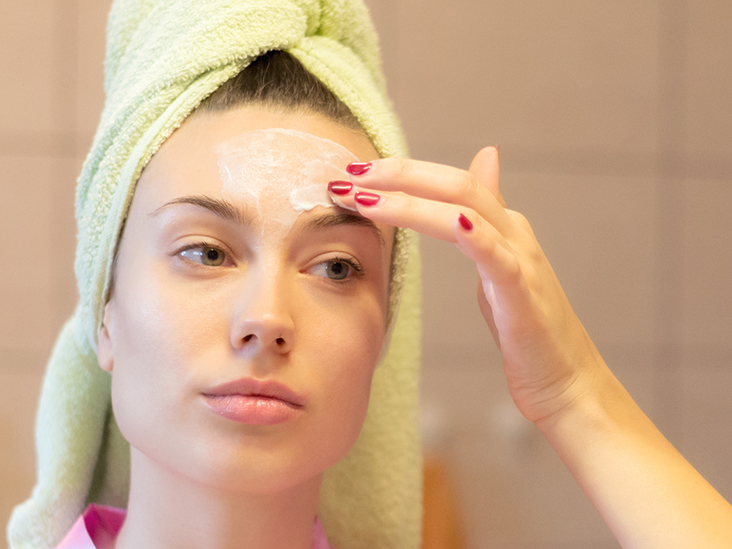General Health Tips & News
Should we use Sulfur Products?
By A.S. (staff writer) , published on December 30, 2021

Medicine Telehealth Health Sulfur Products
What Are Sulfates and What Do They Do?
Sulfate is a surfactant used in face cleansers, shampoos, body washes, and other beauty products. It is a broader term for sulfate-based chemicals like sodium lauryl sulfate and sodium Laureth sulfate. Sulfates are synthesized from fatty alcohols of vegetable origin and petroleum.
Sulfates have a characteristic ability to create lather which gives the impression of strong cleaning power. In skincare products and shampoos, sulfates act as a foaming agent to remove dirt and grime from the face and hair, leaving a clean and fresh sensation.
Concerns about Sulfate Products; are they true?
Chemicals containing sulfates are often under strict scrutiny for being used in beauty and skincare products. Sulfates are accused of causing dryness and irritation when they're in contact with the skin. Although they play a key role in cleaning your skin and hair, they're full of salts and other chemicals that can clog pores and cause acne in people with sensitive skin [1].
Sulfates also remove the protective hydrolipidic film naturally present on the scalp and skin. If sulfates come in contact with the eyes, it causes an extremely stingy sensation. Also, sulfates can be very harsh for your skin and hair, meaning that they can strip away natural oils and moisture, leaving your skin and hair feeling a little parched. In skincare products and shampoos, sulfates act as a foaming agent to remove dirt and grime from the face and hair, leaving a clean and fresh sensation.
Why Are They Questioned?
Chemicals containing sulfates are often under strict scrutiny for being used in beauty and skincare products. They are accused of causing dryness and irritation when they're in contact with the skin. Although they play a key role in cleaning your skin and hair, they're full of salts and other chemicals that can clog pores and cause acne in people with sensitive skin [2].
Sulfates also remove the protective hydrolipidic film naturally present on the scalp and skin. If sulfates come in contact with the eyes, it causes an extremely stingy sensation. Also, sulfates can be very harsh for your skin and hair, meaning that they can strip away natural oils and moisture, leaving your skin and hair feeling a little parched. Sulfates are also said to cause toxicity in the environment because of their origin from petroleum products [3].
Should You Avoid Using Products That Have Sulfate?
Sulfates are effective and safe when they're used in rinse-off or wash-off products like soaps and shampoos. But the high concentration of sulfates may leave your skin and hair dry. Products formulated with a smaller percentage of sulfates can be beneficial and help retain the clean sensation for your skin and hair.
The effects of sulfates can also be complemented by adding natural ingredients like essential oils. If your skin and hair are not affected by sulfate-containing products, you can continue to use them. However, if you start to feel irritation on your skin, you must explore sulfate-free products [4].
Is Sulfate-Free Effective?
While sulfates can be harsh to your skin and offer unwanted side effects, you can choose sulfate-free products if your skin and hair are prone to chemical damage.
Here are some benefits of sulfate-free products that might help you decide whether to use sulfate products or not:
• Sulfate-free products are gentle to your skin and hair. They maintain moisture and essential oils in your skin and hair.
• They balance out PH levels in your skin, which can be beneficial for reducing acne.
• Sulphate-free soaps, shampoos, and face washes are affordable.
• They're not only healthy for your skin but also healthy for the environment.
The Final Verdict:
If you're using sulfates in only rinse-off products, you are least likely to experience irritation. But if you can, try to favor the use of those products that offer fewer side effects for your skin and hair. If you're comfortable using sulfate beauty products, then there's no reason you should stop using them, provided that your skincare or hair-care routine counters the drawbacks of sulfates. If you suffer from a skin or hair condition, always consult your dermatologist before setting a skincare or hair-care routine.
References:
1. Zouboulis CC, Katsambas AD, Kligman AM. Pathogenesis and treatment of acne and rosacea. Pathog Treat Acne Rosacea 2013:1-768. https://doi.org/10.1007/978-3-540-69375-8
2. Bondi CAM, Marks JL, Wroblewski LB, Raatilcainen HS, Lenox SR, Gebhardt ICE. Human and Environmental Toxicity of Sodium Lauryl Sulfate (SLS): Evidence for Safe Use in Household Cleaning Products. Environ Health Insights 2015;9:27-32. httros://doi.ore/10.4137/EHLS31765 3. Rubin CB, Brod B. Natural Does Not Mean Safe—The Dirt on Clean Beauty Products. JAMA Dermatology 2019;155:1344-5. https://doi.org/10.1001/JAMADERMATOL.2019.2724. 4. Cline A, Uwakwe LN, McMichael AJ. No sulfates, no parabens, and the "no-poo" method: A new patient perspective on common shampoo ingredients. Cutis 2018;101:22-6.
Find articles related to: Medicine Telehealth Health Sulfur Products
More articles about General Health Tips & News
Back to the Health Tips Index




